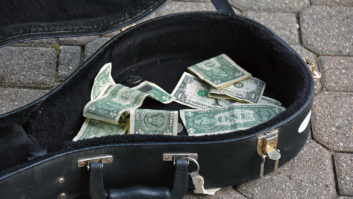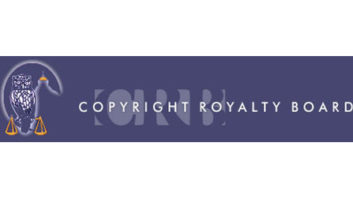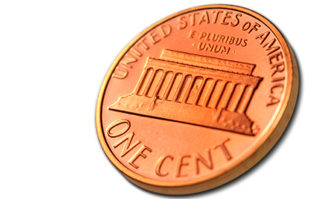Webcasters must pay royalties
Oct 1, 2001 12:00 PM, By Harry Martin
In another victory for the record companies, the United States District Court in Philadelphia has affirmed the Copyright Office’s December 2000 ruling holding that AM/FM broadcasters simultaneously streaming their signals on the Internet are responsible for royalty payments to ACSAP, BMI, and SESAC, and to record companies.
Last December, the Copyright Office issued a final rule stating that AM/FM broadcast signals transmitted simultaneously over the Internet are not exempt from paying royalties to record companies for their limited public performance rights in sound recordings. In response to this final rule, the National Association of Broadcasters and several large broadcast groups filed suit against the Registrar of Copyrights to overturn the Copyright Office’s final rule.
In March 2000 the Copyright Office initiated a rulemaking and sought comments on whether a broadcaster’s transmission of its AM or FM radio station over the Internet is exempt from copyright liability under the Copyright Act, and whether such transmissions should either qualify for the compulsory license or be authorized by the individual copyright owners. The record companies and the broadcasters looked to the Digital Performance Right in Sound Recording Act of 1995 (DPRA) and the Digital Millennium Copyright Act of 1998 (DMCA) for guidance.
The DPRA created an exclusive, but limited, right for copyright owners of sound recordings to perform their works publicly by means of digital audio transmissions. Among the limitations on such performances was the creation of a compulsory license for nonexempt, noninteractive, digital subscription transmissions and an exemption for certain nonsubscription transmissions, the scope of which has been the subject of dispute between broadcasters and copyright owners since the DPRA’s inception.
With the passage of the DMCA, Congress amended the Copyright Act to clarify that the digital sound recording performance right applies to certain nonsubscription digital audio transmissions over the Internet, such as Internet-only webcasting. Specifically, the DMCA created a statutory license for nonexempt eligible nonsubscription transmissions (e.g., webcasting) and nonexempt transmissions by preexisting satellite digital audio radio services to perform the sound recordings publicly in accordance with the terms and conditions set forth in the new statutory license. The parties disagreed, however, over whether a broadcast transmission, which is defined as a transmission made by a terrestrial broadcast station licensed by the FCC, is a non-subscription transmission within the scope of exemptions provided in the Copyright Act.
The District Court in Philadelphia sided with the Copyright Office in its interpretations of the Copyright Act. Thus, any entity that transmits an AM/FM radio signal via the Internet is subject to the terms of the statutory license in the Copyright Act is law, and AM/FM broadcasters must comply with it or face sanctions.
The Copyright Arbitration Royalty Panel (CARP) is in the process of establishing rates and terms for statutory licenses to webcast public performances of sound recordings. The CARP rates are not expected to be established until the end of the year at the earliest and will be retroactive.
FM Auctions Cancelled
The FCC has indefinitely cancelled its December 5, 2001 FM auction. The agency was scheduled to accept short-form auction applications (Form 175) for 352 vacant FM allotments between September 24 and October 5 and proceed to auction them beginning December 5.
The delay is a result of a decision by the U.S. Court of Appeals for the D.C. Circuit, which held that auctions would not be permitted for any applicant group that includes one or more noncommercial (NCE) applicants. It was expected that many of the available frequencies would attract NCE applicants because such applicants would have a better opportunity under any selection criteria other than auctions.
It is likely the FCC will seek help from Congress to resolve the question of how to select among NCE and commercial applicants. A good argument could be made that the law should be changed to provide that NCE applicants be required to participate in auctions when they apply for commercial channels.
If Congress does not act, the FCC will be left with little choice but to come up with a point system to decide among mutually exclusive applicants. Such a point system, which favors locally-based groups and those with the fewest existing broadcast interests, is already in place for NCE-only application contests.
Harry Martin is an attorney with Fletcher, Heald & Hildreth, PLC., Arlington, VA. E-mail[email protected].
Dateline
Radio stations in the following states must file their biennial ownership reports on or before December 3, 2001: Alabama, Colorado, Connecticut, Georgia, Maine, Massachusetts, Minnesota, Montana, New Hampshire, North Dakota, Rhode Island, South Dakota and Vermont.











